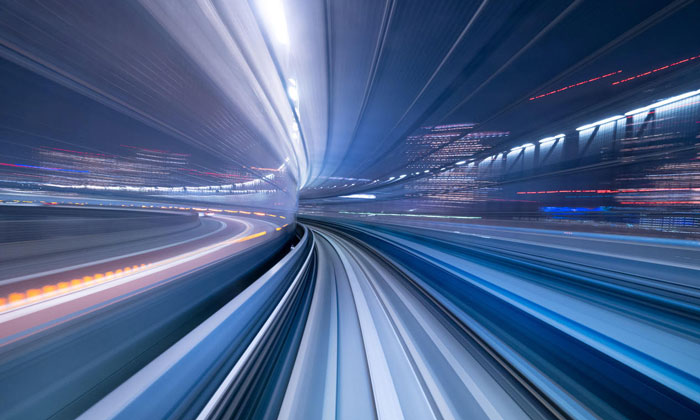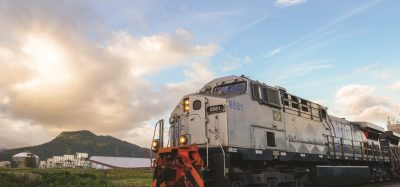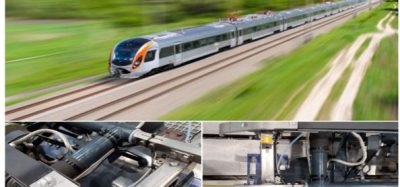How technology improves the retail experience for both train operators and passengers
Posted: 9 March 2018 | Mark Simpson - ECR Retail Systems | No comments yet
Mark Simpson, Head of Sales, ECR Retail Systems discusses how modern technology can provide operators with more frequent e-commerce and passengers with a higher-quality transportation experience…


Most of today’s travellers operate in a world where orders are placed on the move – apps offer instant, one-stop purchasing and the variety of products on offer for all budgets is enormous. New apps are constantly being developed that allow passengers to do their personal shopping, ticket ordering and banking on their phone, watch or tablet. They can do so directly from voice-recognition in the home or on the move, while sophisticated algorithms make the task of filtering through irrelevant offers redundant.
Naturally, train passengers now have the same expectation of easy and efficient purchasing, both before and during their journey, that they have elsewhere. High quality food and drink, on-board entertainment and Wi-Fi, travel updates and automated refunds are all becoming part of the expected customer experience.
At the same time, a growing number of companies in all sectors are using customer data to enhance their business decision-making and the rail industry is no exception. Solid business intelligence facilitates new opportunities for expanding and improving retail business in the sector.
With the proliferation of different travel choices on offer to customers, train operating companies need to develop new and better ways to maximise profits, whilst also offering a better experience to business and leisure passengers alike. Progressive rail companies are increasingly realising that having the latest on-board technologies helps to improve passenger satisfaction, as well as grow new revenue streams for operators. Secure and convenient on-board payment services are already becoming more commonplace and the availability of sophisticated business intelligence represents new opportunities for expanding retail sales.


It is now very common for people to make purchases from their smartphones whilst on the move
There is virtually no aspect of modern travel – whether for passengers or travel operators – that is not affected by technology and some rail companies are already embracing the opportunities it offers. This is helping them develop incremental revenue by matching the increasing demand from customers for an overall better travelling experience, by selling additional and more personalised services.
With the wide choice that customers now have regarding ticket purchasing, there are opportunities throughout the customer’s journey to market and sell ancillary goods and services. Rail companies can track the points at which they can offer personalised goods and services, such as refreshments, seat upgrades and even insurance and destination attraction tickets.
Capturing relevant information, such as passenger needs and preferences, across the entire customer journey is vital to enable this capability, to support sales campaigns and deliver better customer service, which will increase customer loyalty and drive revenue. Big data analytics can be used to predict customer-specific purchase behaviour, allowing businesses to offer customers greater personalisation and encourage them to spend more on-board. Companies that are already starting to do this include: SNCF, Newrest Wagons-Lits, Irish Rail, Northern Irish Rail, Rail Gourmet, East Midlands Trains, TransPennine Express, Grand Central and GWR.
Some time ago, Rail Gourmet, whose customers included TransPennine Express, East Midlands Trains and Grand Central Trains, decided to look for a company that could supply an off-the-shelf electronic point-of-sale (EPOS) solution for on-board train catering. They needed a system technologically advanced enough to handle fast mobile transactions, yet reliable and intuitive enough for crews to use with minimal training. The company can log retail transactions on the system and all sales, stock, tender and operator information is then sent back to Rail Gourmet’s head office.


Operators can offer customers greater personalisation and encourage them to spend more on-board
The purchase of the point-of-sale (POS) was driven by a desire to gain an accurate view of sales levels and full control over retail financials. The solution offers Rail Gourmet the chance to improve the integrity of stock data and therefore reduce the incidence of over or under supplying a train with any given product line and include a state-of-the-art reporting tool for sales and stock analysis.
As in this example, the best on-board POS and business intelligence allows rail companies to manage their stock control effectively, even on lengthy train journeys with multiple stops, crew and passenger changes and the complexity that crossing different networks and country borders brings. Such systems make it easy, quick and accurate to understand very large volumes of data. This allows for analysis of each data stream, providing excellent insight into stock, product price and customer purchasing preferences.
For rail companies to implement this technology, taking the first step may seem daunting. A logical, initial approach is to start by implementing the right e-commerce, personalisation, analytics and logistics technologies. The next step would be to address the issue of payment technologies. Today, passengers expect to be able to pay using multiple currencies and even vouchers across different rail networks as well as via contactless and mobile wallet payments. Following this, it would be logical to look at whether a rail company’s payment technologies are suitable for the modern passenger and can help operators drive revenue.
With the government now accelerating the abolition of paper tickets on UK trains, smart ticketing will become the norm and rail companies need up-to-date systems to ensure that passengers will be able to use mobile phones and smartcards to travel across most of the network by the end of this year.
Using practical technologies such as innovative EPOS systems linked to smart back office analytics capabilities improves the passenger and staff experience, builds customer loyalty and increases profitability. This is a clear win-win for both passengers and train operators.
Related topics
Big Data, Internet of Things (IoT), Operational Performance, Passenger Experience/Satisfaction, Technology & Software, Wi-Fi








